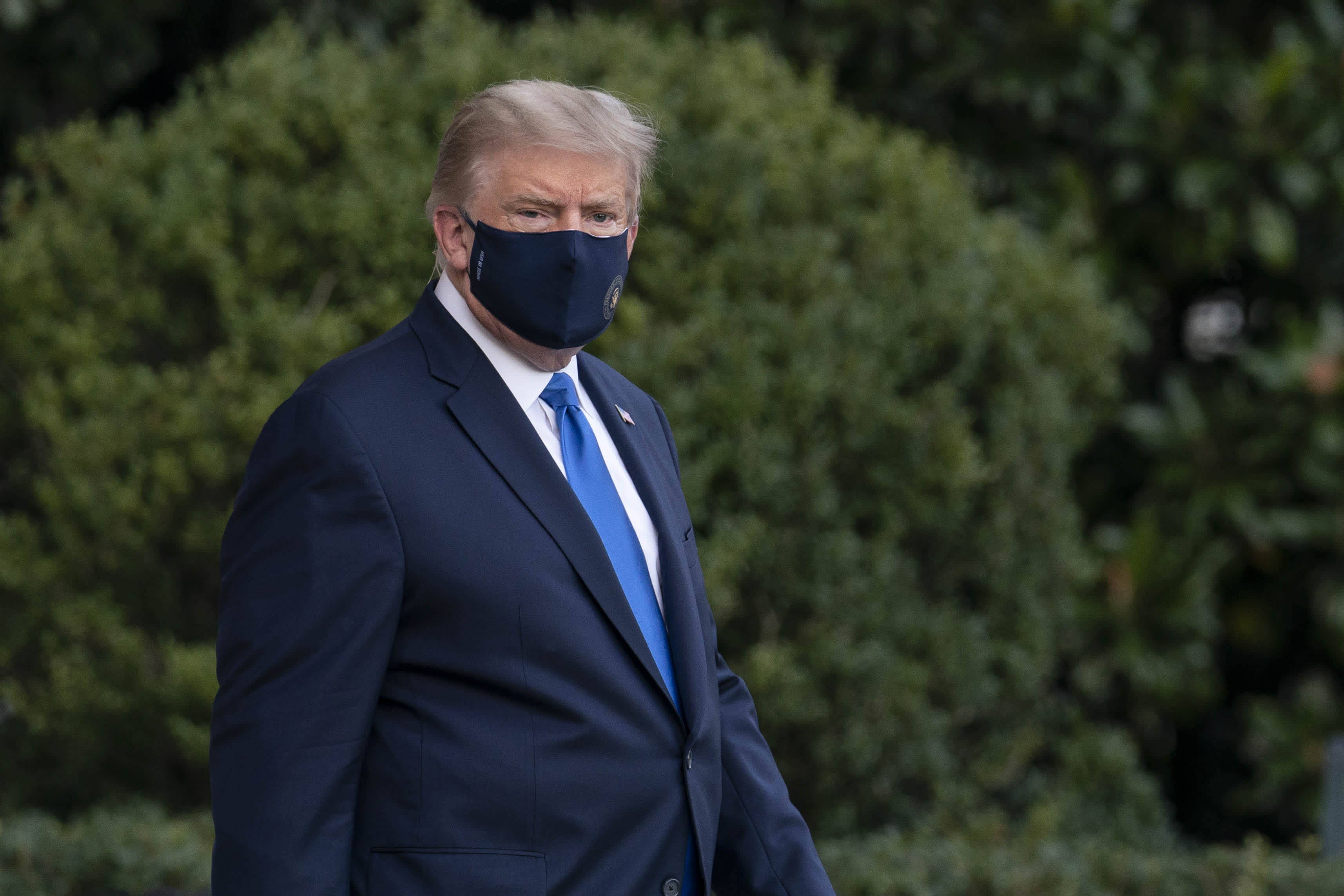
President Donald Trump’s oxygen level fell rapidly on Friday morning fueling concerns about his health, White House Chief of Staff Mark Meadows said Saturday night.
In an interview with Fox News host Jeanine Pirro, Meadows said both he and White House physician Dr. Sean Conley were “real concerned” by Trump’s condition on Friday morning.
“He’s made unbelievable improvement from yesterday morning when I know a number of us, the doctor and I, were very concerned,” Meadows said.
“The biggest thing that we see is that with no fever now, and with him doing really well with his oxygen saturation levels… Yesterday morning, we were real concerned about that. He had a fever, and his blood oxygen level had dropped rapidly.”
The president reportedly received supplemental oxygen on Friday at the White House when he had difficulty breathing, according to The New York Times and Associated Press. He was transferred to Walter Reed National Military Medical Center later that day.
The White House declined to comment when contacted by CNBC.
White House physician Dr. Sean Conley and Dr. Sean Dooley, a pulmonologist at Walter Reed, told reporters on Saturday morning that the president was not using supplemental oxygen and was not having difficulty breathing. The doctors would not comment on whether Trump had received supplemental oxygen at any point.
A source familiar with Trump’s condition told NBC News that some of the president’s vital signs that morning indicated the coronavirus could progress beyond mild illness.
The White House released an update on Saturday night, and White House physician Conley said the president was “off supplemental oxygen with a saturation level between 96 and 98% all day.” He said Trump remained fever-free and continues to do well.
“The doctor is exactly right. He is doing extremely well,” Meadows told Fox News. “I’m very, very optimistic based on the current results. As the doctor said, he’s not out of the woods, the next 48 hours are still, with the history of this virus we know can be tough.”
— CNBC’s Spencer Kimball contributed to this report.


